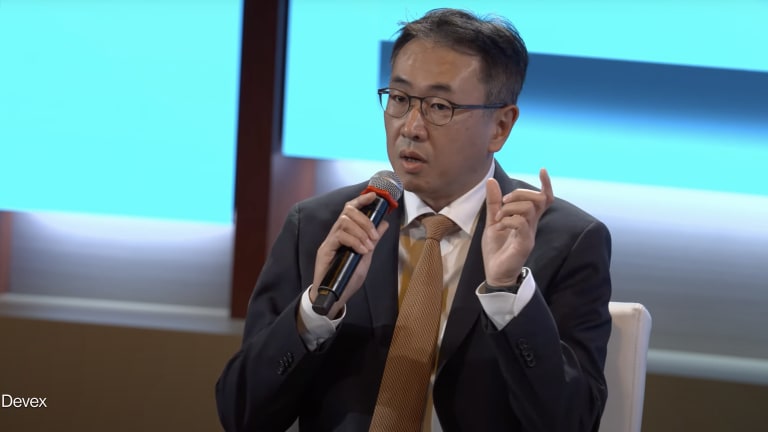
EDITOR’S NOTE: Can Jim Yong Kim be the president the World Bank needs? Isobel Coleman of the Council on Foreign Relations addresses the controversies hounding U.S. President Barack Obama’s pick to lead the World Bank in this article in the Democracy in Development blog.
President Obama’s surprise announcement of Jim Yong Kim for World Bank president is stirring controversy.
Out of the gate, some have questioned whether Kim has the management experience to lead the World Bank into a new era. Unlike his predecessors, Kim is not a bureaucrat or a banker (a good thing, I would argue), but he does have a notable lack of experience in economics. A medical doctor with a PhD in anthropology, he has spent most of his career actually working in development–as a co-founder of Partners in Health, an organization that provides on-the-ground health care services to some of the world’s neediest people, and as a former director of the World Health Organization’s Department of HIV/AIDS. This is undeniably useful background for running the World Bank.
However, some question whether his narrow focus on global health limits his abilities to address the full breadth of the World Bank’s work in international development. Others criticize his tenure at the WHO. As my colleague Laurie Garrett notes, Kim’s signature “3 by 5” Initiative—treating 3 million people in the developing world with antiretroviral therapy for HIV by 2005–was marked by numerous management problems and ultimately failed to meet its targets. (Defenders say Kim’s “3 by 5” Initiative was intended to be inspirational and in fact did help drive an expansion of low cost antiretrovirals well beyond expectations.) Harvard professor Lant Pritchett blasts Kim’s nomination, saying that it’s “like picking the short stop for the New York Yankees out of the scrub league.”
Kim is also dogged by controversial statements he made in the book Dying For Growth, in which he argues that the global emphasis on economic growth—an emphasis that the World Bank shares—has resulted in a state of affairs where “more people join the ranks of the poor and greater numbers suffer and die.” This is some provocation. After all, about 50 years ago, Kim’s native country of Korea had a per capita GDP approximately equivalentto Ghana’s. Today, Korea has the 15th largest economy in the world, according to IMF data, and it achieved this remarkable jump thanks largely to, well, economic growth.
The bigger issue here relates to the mission of the World Bank itself, and whether Kim is capable of redefining the Bank’s mandate. The Bank’s traditional lending activities are becoming less relevant as the number of very poor countries decreases and aid makes up a dwindling proportion of developing countries’ income. Indeed, donor funds currently account for less than one percent of the average income of a country that receives aid. Moreover, because many developing countries can now attract investment from the global private sector and investment industry, some argue that the Bank’s traditional financing projects are far less relevant to international development than they were in the past. If the Bank is to be an effective player in poverty reduction going forward, it will need to shift its focus, and resources, significantly. As I have written previously, the bank has amassed an impressive data base that could be leveraged more effectively, effectively turning it into a think tank and innovator on global development. Robert Zoellick has taken important steps in this direction by initiating the open data push.
It is not clear that Kim has the bureaucratic savvy to accomplish the mission shift the Bank has started to make under Zoellick, although he certainly rocked the boat as president of Dartmouth by taking on the school’s then-impending $100 million deficit through budget cuts and layoffs. The World Bank, however, is a much larger (and equally hidebound) organization that will require boldness to keep it relevant.
Kim faces some competition for the Bank’s presidency from Nigerian finance minister Ngozi Okonjo-Iweala, a strong alternative candidate that South Africa, Nigeria, and Angola have nominated. As finance minister, Okonjo-Iweala is deeply familiar with international development issues, the hard cross-sectoral trade-offs that policy makers must make. She also knows the internal dynamics of the World Bank, having worked there for over two decades, most recently as a Managing Director. Nevertheless, the gentlemen’s agreement that gives the Bank’s presidency to the United States will likely ensure that Kim emerges victorious, and he has already received the endorsement of key Asian countries, including China. But he will soon find that figuring out how to keep the Bank relevant in today’s world is a tougher challenge than anything he has faced before.
Republished with permission from the Council on Foreign Relations. View original article.








